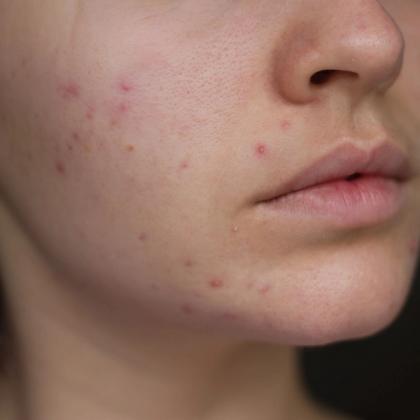Go to /account/subscription-details page
This podcast episode is worth 0.46 CPD credits. Upgrade to Pro
In this episode, Dr Hannah Rosa discusses a condition that affects 95% of people aged 11–30 to some extent: acne. The 2021 NICE guideline on acne vulgaris is explored in detail, and broken down into four steps:
- Getting the diagnosis of acne right, including how to grade its severity
- What constitutes good general skin-care advice
- Management options
- The new MHRA guideline on isotretinoin.
Key references
- NHS. https://www.nhs.uk/conditions/acne/.
- NICE. 2023. https://www.nice.org.uk/guidance/ng198.
- The Primary Care Dermatology Society. 2021. https://www.pcds.org.uk/clinical-guidance/acne-fulminans.
- The Faculty of Sexual and Reproductive Healthcare. 2019. https://www.fsrh.org/standards-and-guidance/documents/combined-hormonal-contraception/.
- Mijaljica D, et al. Molecules. 2022;27(6):2010. doi: 10.3390/molecules27062010.
- Chien AL, et al. J Am Fam Med. 2016;29(2). doi: 10.3122/jabfm.2016.02.150165.
- Royal Pharmaceutical Society. British National Formulary 87. 2024.https://www.rpharms.com/publications/bnf.
- Koo EB, et al. J Am Acad Dermatol. 2014;71(3):450-459. doi: 10.1016/j.jaad.2014.03.051.
- Arowojolu AO, et al. Cochrane Database Syst Rev. 2012;7:CD004425. doi: 10.1002/14651858.CD004425.pub6.
- British Association of Dermatologists. Isotretinoin Patient Guide. 2023. https://www.bad.org.uk/pils/isotretinoin/.
- Kridin K, Ludwig RJ. J Am Acad Dermatol. 2023;88(2):388-394. doi: 10.1016/j.jaad.2022.10.031.
- Medicines & Healthcare products Regulatory Agency. 2023 https://www.gov.uk/drug-safety-update/isotretinoin-roaccutanev-introduction-of-new-safety-measures-including-additional-oversight-of-the-initiation-of-treatment-for-patients-under-18-years-of-age.
Resources
- British Association of Dermatologists. Acne Patient Information Leaflet. 2020. https://www.bad.org.uk/pils/acne/.
- British Association of Dermatologists. Isotretinoin Patient Guide. 2023. https://www.bad.org.uk/pils/isotretinoin/.
- Acne Support. 2024. https://www.acnesupport.org.uk/.
Key take-home points
- NICE classes acne as either being mild-to-moderate or moderate-to-severe.
- Mild-to-moderate acne: any number of blackheads or whiteheads, up to 34 papules or pustules and up to 2 nodules.
- Moderate-to-severe acne: either 35 or more papules or pustules or 3 or more nodules.
- To cleanse the skin people should use a non-alkaline synthetic detergent cleansing product, or syndet, twice a day.
- For antibiotics and acne there are three golden rules:
- Do not use a topical antibiotic alone
- Do not use an oral antibiotic alone
- Do not use a topical antibiotic and an oral antibiotic together.
- For mild-to-moderate acne a topical treatment can be used:
- Benzoyl peroxide with topical clindamycin gel
- Adapalene with benzoyl peroxide (Epiduo)
- Tretinoin with clindamycin.
- For moderate-to-severe acne the treatment options are:
- Adapalene with benzoyl peroxide
- Tretinoin with clindamycin
- An oral antibiotic (lymecycline or doxycycline) with a topical gel (Epiduo or azelaic acid).
- In its 2023 guideline, the Faculty of Sexual & Reproductive Healthcare does not recommend one type of combined pill over another for acne. NICE and the British National Formulary state that, if first-line treatment options have not worked for people with acne and polycystic ovarian syndrome, co-cyprindiol can be considered.
- People with skin of colour are at an increased risk of post-inflammatory hyperpigmentation and we should aim to treat and refer them early. Topical therapy with retinoids and azelaic acid can be particularly good, as these treatments can target both the acne and the post-inflammatory hyperpigmentation.
- Before referring a patient for potential isotretinoin treatment, we should:
- Highlight all the treatments that the patient has tried so far
- Give the patient information about the potential benefits and risks of isotretinoin, including providing them with an information leaflet
- Consider the person’s psychological well-being and whether referral to mental health services is appropriate
- Discuss contraception with women of childbearing potential
- Check blood tests (if required in your area)
- If the patient is under 18, document whether you are willing to be the second approved named healthcare professional.
Create an account to add page annotations
Annotations allow you to add information to this page that would be handy to have on hand during a consultation. E.g. a website or number. This information will always show when you visit this page.
